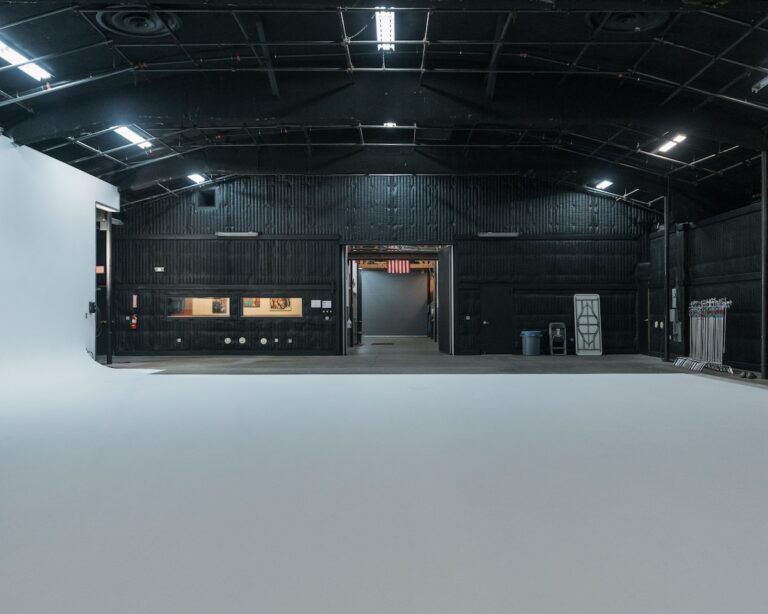
It’s no secret that the grueling 148-day writers’ strike and 118-day sister actors’ strike set back studio production, but how did the two Hollywood standoffs affect Los Angeles real estate, particularly from a tenant-landlord perspective?
“It impacted them significantly,” said Nicole Mihalka, a managing director at Jones Lang LaSalle Inc. who specializes in creative office and entertainment industry related real estate.
“There was very little occupancy and filming during that time,” Mihalka said. “The only work that really was booked on soundstages were commercials and some reality content that was considered not strike work. Sound stage occupancy took a nosedive during the strike for obvious reasons.”
Three of the biggest local owners of sound stages are Brentwood-based Hudson Pacific Properties, Sawtelle-based Kilroy Realty and Culver City-based Hackman Capital Partners, all of which surely felt the sting of the strikes.
Hudson Pacific, which boasts 1.5 million square feet of sound stages locally, experienced an 11% decrease in revenue unveiled in the company’s third quarter financial results.
The company attributed its decline in revenue to a variety of factors including the sales of three buildings over the course of the year, as well as previously communicated tenant move-outs. It also highlighted “a reduction in studio service and other revenue to the related union strikes” as a driving factor of revenue loss in its report.
“The trailing 12-month lease percentage for stages at our in-service studios ended the quarter down at 580 basis points at approximately 90% leased due to a single tenant opting not to renew on six stages at Sunset Las Palmas because of the strike,” Mark Lammas, president of Hudson Pacific Properties, said during the company’s Nov. 2 earnings call.
“Underscoring the uniqueness of this situation, this is the lowest lease percentage we’ve had at that facility during our ownership since 2017,” he said.
While Kilroy Realty reported a slight revenue increase of 2.8% over the last quarter, that figure differs dramatically from the 19% revenue increase reported the year prior.
The company owns a myriad of creative office and studio campuses, including Westside Media Center and Tribecca West in West Los Angeles and On Vine and Columbia Square in Hollywood.
Hackman Capital, a private company, declined to comment on how it was affected by the strikes but JLL’s Mihalka said the company owning MBS Studios – which operates studios such as the Culver Studios in Culver City, Raleigh Studios in Hollywood and Television City in West Hollywood – likely hurt the company’s bottom line.
More than real estate
So, how do sound stage owners make revenue in the first place and what caused that revenue to dip?
“(Sound stage ownership) is not like a traditional real estate model,” Mihalka said. “It’s an all-encompassing business. (Production companies) come in and everything for their production is there and provided by the ownership.”
Unlike other forms of real estate, companies that own sound stages do not just make money renting out the space. Most of these studio owners also offer their own extensive packages for standard gear rentals such as lighting and grip, and charge for other expendable services such as air conditioning and electricity.
“We very much partner with our clients in that they will rent gear from us,” Christina Hirigoyen, general manager of Hollywood-based BLT Studios, which owns a handful of smaller sound stages primarily booked for quicker turnaround projects such as commercials and music videos, said.
Similarly, downtown-based Electric Pony Studios charges $700 a day for a wide variety of in-house equipment rentals and production supplies. Special packages cater toward different productions, along with an a-la-carte menu of additional props and supplies.
While in-house grip and electric packages are typically not required of customers, a lot of times it makes more sense and is more economical than renting out-of-house. Together, these ancillary rentals typically drive a significant portion of the revenue for these studios, sometimes more than the real estate rental itself.
“When the stages are dark during a strike, there are also several other key revenue drivers that also go dark,” Mihalka said.
Recuperating industry
While the unique model sound stage operators offer helps to explain various missed revenue opportunities during the halt of production, there seems to be an overwhelming sense of optimism now that the two strikes are officially behind, with tenant interest on the rise.
“Right now, what we’re seeing is, as soon as the writer’s strike was resolved, we got calls where we hadn’t gotten calls for six months for writer’s rooms,” Mihalka said. “That was the first sign of life.”
“And then, since the actor’s strike has been resolved, I’ve seen a huge push or uptick in post-production requirements,” she said. “I might have two or three post-production tours a week right now, whereas it was, even in the past year before the strike, I saw very little post (production) activity.”
As projects that were green lit before the commencement of the strikes are just now getting added in the queue, Mihalka said stages are beginning to take bookings for next year, and industry demand for new sound stages is at an all-time high.
A couple new studios are currently in development, including Echelon Studios in Hollywood, as well as the redevelopment of the Warner Bros. Ranch in Burbank and the Radford Studio Center in Studio City.
“I think the strike impacted the greater Southern California economy and showed us how important entertainment is to Southern California and that we, as a local community and as a state, need to be doing everything possible to retain production in California,” Rob Solomon, president of BLT Enterprises, said.
